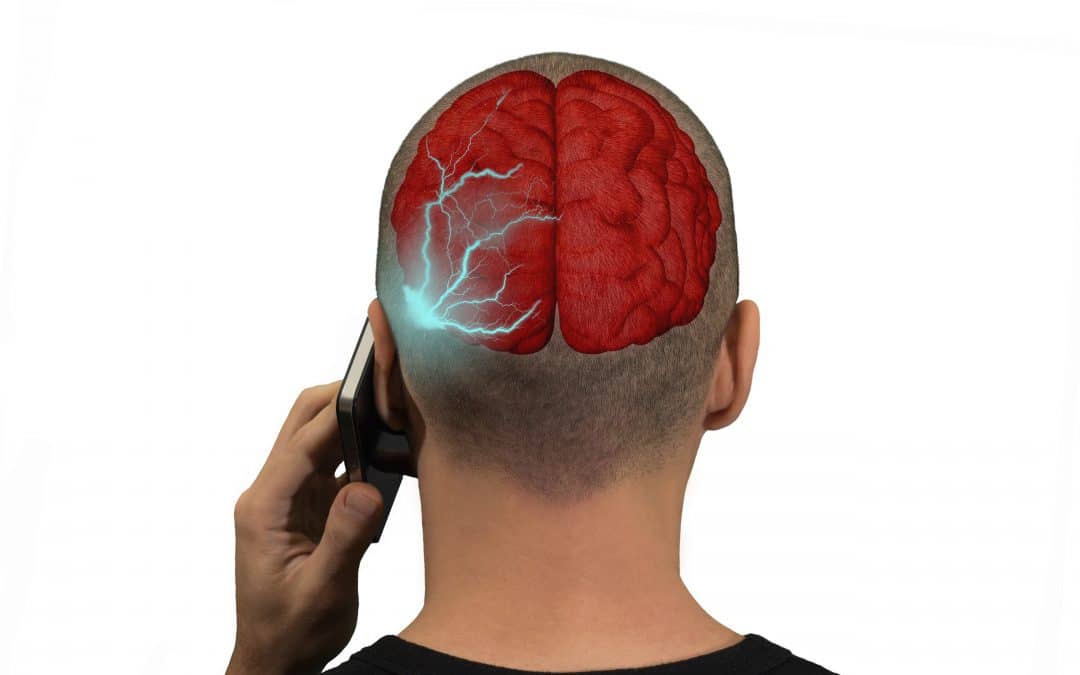Whether cell phone radiation is harmful to the body is still being debated. Sometimes yes, sometimes no – opinions differ widely. But nothing has been proven
Harmful? What cell phone radiation actually is
“Cell phone radiation” refers to high-frequency radio waves, also known as electromagnetic fields. They fall under the generic term “electrosmog”, which however includes other electromagnetic radiation, such as that from high-voltage power lines or the domestic power grid.
- These radio waves are emitted by cell phones and cell phone masts, smartphones, WLAN devices, DECT telephones, radio and TV transmission systems.
- Mobile phone radiation is therefore speech or data converted into radio waves. This is how they reach the receiving device and can be listened to or viewed there.
- The so-called specific absorption rate of a cell phone (SAR value) may not exceed two watts per kilogram for cell phones sold in Germany. Other limits may apply in other countries.
- The SAR value of a cell phone is determined by measurements taken directly on the body. As a rule, the intensity of the electromagnetic radiation decreases the further you move the device away from your body.
Harmful or not? This is what the opponents of radiation say
Some things may indicate danger, but it has not been proven that cell phone radiation can lead to illness.
- Pulse methods for WLAN and GSM are suspected of increasing the risk of cancer and disrupting sleep patterns.
- In Russia, Italy and Belgium, significantly lower limits apply than in Germany. Radiation opponents see this as an indication that cell phone radiation is harmful to health.
- Some people and animals are considered “electrohypersensitive”. In 2011, the Council of Europe called for better protection for electrosensitive people; against radiation – for example by introducing radiation-free areas – and against discrimination and intolerance – above all through education.
- Financially speaking, cell phone radiation can be harmful: Proximity to cell phone towers sometimes harms housing and land prices.
- In Sweden, electrohypersensitivity is recognized as a disability, which the European Parliament had demanded for all member states in 2009.
No evidence of diseases caused by cell phone radiation
Despite the arguments put forward by radiation opponents, cell phone radiation is still considered harmless. This is mainly due to the fact that causal links between radiation and symptoms of illness have not been proven. Compared to the increasing expansion of cell phone networks in recent decades and the increasing duration of exposure, there are still only a few symptoms of illness. Draft legislation takes this into account.
- The 26th Federal Immission Control Ordinance was first revised in 2013 (§48b BImSchG). It does not provide for a reduction in the limit values
- The fact that people react completely differently to cell phone radiation – some immediately, some with chronic exposure, others not at all – and that the symptoms also sometimes differ greatly, tends to speak against a direct connection between radiation and physical suffering.
- The list of symptoms is long: headaches, nausea, exhaustion, high blood pressure, palpitations as well as skin changes, numbness and tingling are among them. Dermatitis, a feeling of heat, muscle weakness, tinnitus, visual disturbances, stomach and circulatory problems and a range of psychological symptoms have also been reported. What is missing is proof that cell phone radiation is actually (partly) responsible for this range of ailments.
- Ionizing electromagnetic radiation has clearly demonstrable effects on the human blood count, for example. There is no physical or biochemical evidence to date for cell phone radiation.
- The WHO has classified cell phone radiation as possibly carcinogenic since 2013, as reported by the German Medical Journal. However, potentially carcinogenic substances also include pickled vegetables and coffee.
- The Federal Office for Radiation Protection disagrees. According to them, there is no increased risk of cancer when cell phones or smartphones are used.
